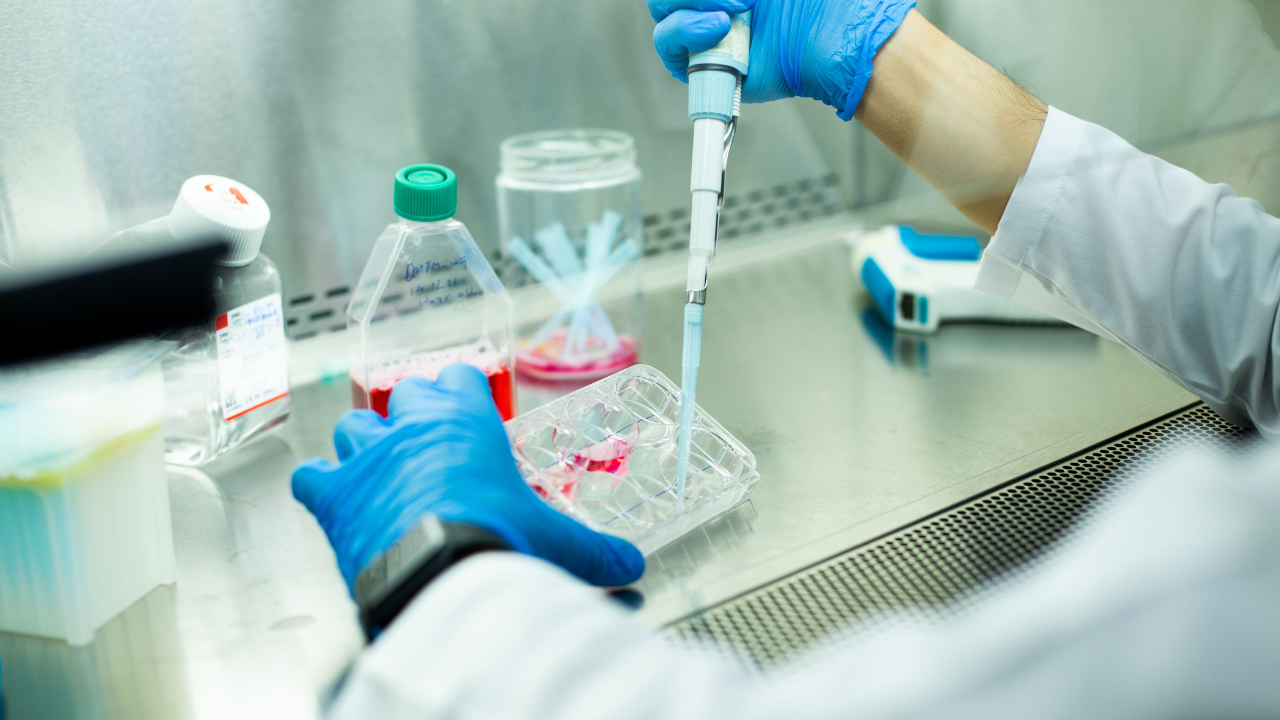Key Takeaways:
- Understanding Stem Cell Therapy: Stem cell therapy uses the body’s natural healing power to regenerate damaged tissues.
- Wide Range of Applications: This therapy can be used to treat various conditions, including arthritis, back pain, sports injuries, and hair loss.
- Non-Surgical Solution: Stem cell therapy offers a minimally invasive approach to pain relief and tissue regeneration.
- Faster Recovery: Compared to traditional treatments, stem cell therapy can accelerate healing and reduce recovery time.
- Long-Lasting Results: By addressing the root cause of the problem, stem cell therapy can provide long-term benefits.
If you’re searching for effective, non-surgical solutions for chronic pain or injury recovery, stem cell therapy offers an innovative approach.
From treating arthritic knees to chronic back pain or even addressing hair loss, this cutting-edge therapy provides a natural, regenerative option for lasting relief.
Let’s explore how stem cell therapy works step-by-step and its benefits for various conditions.
The Definition of Stem Cell Therapy
At its core, stem cell therapy uses the body’s natural healing mechanisms to repair damaged tissues. Stem cells are unique because they can transform into different cell types, aiding the repair and regeneration of injured areas. This process can significantly improve mobility and reduce pain. Whether it’s stem cell therapy for knees, stem cell therapy for back pain, or even hair restoration, the therapy targets specific problem areas to accelerate healing without the need for invasive surgery.Step-by-Step Guide to Stem Cell Therapy
- Consultation and Assessment
- The journey begins with a detailed consultation at the Regenerative Institute of Newport Beach to determine if you’re a good candidate for stem cell therapy.
- Doctors assess your medical history, pain areas, and treatment goals.
- Stem Cell Extraction
- Stem cells are typically extracted from your body, often from bone marrow or fat tissues, ensuring the process is safe and natural.
- These cells are processed to isolate and concentrate the most potent healing cells.
- Targeted Injection
- The processed stem cells are injected directly into the affected area, such as the knee, back, or scalp.
- Ultrasound or imaging guidance ensures precision placement, maximizing the therapy’s effectiveness.
- Healing and Regeneration
- Once injected, stem cells get to work, transforming into the necessary cell types to repair damaged tissue.
- Over weeks and months, patients experience a gradual improvement in pain, function, and mobility.
Who Can Benefit from Stem Cell Therapy?
Stem cell therapy is a versatile treatment with applications for a variety of conditions:- Older Adults with Arthritic Pain: Helps regenerate cartilage and reduce inflammation in joints.
- Athletes Recovering from Injuries: Accelerates recovery from ligament, tendon, and muscle injuries.
- Those with Chronic Back Pain: Relieves pain caused by degenerative disc issues or spinal injuries.
- Individuals Experiencing Hair Loss: Stimulates hair follicles for natural regrowth.
Benefits of Stem Cell Therapy
Patients turn to stem cell therapy near me for numerous reasons:- Non-Surgical Approach: Avoid the risks and downtime of surgery.
- Natural Healing Process: Uses your body’s cells for repair.
- Long-Lasting Results: Many experience months or years of relief.
- Minimally Invasive: Quick injections with no lengthy recovery.
- Versatility: Effective for pain relief, mobility improvement, and hair restoration.
Conditions Treated with Stem Cell Therapy
Here are the most common conditions effectively treated by stem cell therapy:- Arthritic Knees: Regeneration of cartilage for improved joint function.
- Chronic Back Pain: Relief from degenerative or injury-induced back pain.
- Sports Injuries: Treatment for tendonitis, ligament tears, and more.
- Hair Loss: Stimulates hair follicles to encourage growth.
How Stem Cell Therapy Supports Athletic Recovery
For athletes, whether seasoned or recreational, injuries can be a significant setback. Stem cell therapy provides a powerful, non-surgical solution to accelerate recovery and enhance performance.- Repairing Muscle Damage: Stem cells target injured muscles, reducing inflammation and promoting faster healing.
- Rebuilding Tendons and Ligaments: These critical structures benefit from the regenerative properties of stem cells, restoring strength and flexibility.
- Enhancing Performance: By addressing underlying wear-and-tear, athletes experience better mobility and reduced injury recurrence.
Stem Cell Therapy Vs. Traditional Treatments
When considering pain relief or recovery options, it’s essential to understand how stem cell therapy differs from traditional methods.Traditional Treatments
- Medication: Often addresses symptoms without treating the root cause.
- Surgery: Can be invasive, with risks and lengthy recovery times.
- Physical Therapy: May require extended periods to show improvement.
Stem Cell Therapy
- Addresses the Root Cause: Repairs damaged tissues at the cellular level.
- Minimally Invasive: A quick injection with no surgical risks.
- Speeds Up Recovery: Results are noticeably faster compared to many traditional therapies.
Myths Vs. Facts About Stem Cell Therapy
To clarify misconceptions, here’s a breakdown of the most common myths and facts: Myth: Stem cell therapy is only for serious injuries. Fact: It’s effective for mild to severe conditions, from arthritis to hair loss. Myth: Recovery is immediate. Fact: While results are gradual, most patients notice improvement within weeks. Myth: It’s only for older adults. Fact: Athletes and younger individuals benefit significantly, especially for injury recovery. Myth: It’s experimental and unproven. Fact: Stem cell therapy is backed by years of research and has FDA approval for specific treatments.What to Expect After Stem Cell Therapy
- Minimal Downtime: Most patients resume normal activities within a day.
- Gradual Improvements: Expect to notice relief within weeks as tissues regenerate.
- Follow-Up Care: Your doctor will monitor your progress and adjust the treatment plan as needed.


